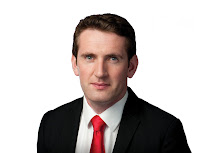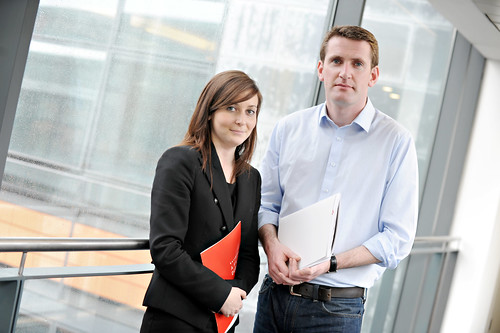'Access to Teacher Training Key to Tackling Educational Disadvantage'
Children from disadvantaged communities typically don’t grow up to be teachers; typically don’t return to their old schools as education leaders or beacons of educational advancement. Until we can address this deficit, poorer children will continue to feel disconnected from our education system and will never enjoy the opportunities most young people take for granted.
Any teacher with experience in a disadvantaged school will confess that obstacles to advancement lie in the lack of self-esteem and the absence of an educational tradition in the local community. Children are greatly influenced by the adult experiences around them, but also by the expectation levels that society places on them. My experience is that the greatest challenge lies in the core-belief of many children that they just aren’t good enough. It is this cultural gap in education that is our responsibility to bridge.
My school in Dublin’s North Inner City was typical of those operating under the DEIS (Delivering Equality of Opportunity in Schools) system. While numerous academic studies have investigated the causes and potential strategies to tackle educational disadvantage, what is immediately apparent to newly-qualified educators is the difference between the demographic of the student body of their training college and those children who now depend on them so much.
From the perspective of these children, often their generational family experience is one of negative interactions with state institutions. The Irish state has struggled since its inception to deal respectfully with difference, including the ‘difference’ of disadvantage. Irish society still treats with suspicion and even fear those who speak with a certain accent or with a given address.
Our society therefore unwittingly undermines the self-image of the poor. We are all to blame for this, and many of our teachers are at the front-line attempting to address it. However, the perpetuation of this reality within education is almost inevitable when observing the cohort of the student body of the average Institute of Education: almost exclusively middle class, studying in an isolated environment under a singular ethos with a particular understanding of the social order.
These students become teachers in our schools and are educational role models for our children. While acknowledging that most Irish primary teachers are remarkable people and DEIS schools are staffed by incredible professionals, there is an undeniable cultural barrier within education. Poorer children observe their teacher as not being ‘of’ their community and they view the system as not understanding or respecting them. Therefore a fresh approach is now necessary to allow disadvantaged students into the teaching profession to break down that cultural obstacle, and also to change the dynamic within school communities.
Access to primary teacher training requires a Leaving Certificate points total in the high 400s and a minimum C3 grade in Higher Level Gaeilge. The Higher Education Access Route (HEAR) already provides for a level of positive discrimination but the Irish language stipulation disproportionately impacts on poorer students, considering the resources many middle-class families have for Gaeltacht summer courses and private tuition. Also DEIS secondary schools often struggle to provide Higher Level options for their students.
The required standard of Gaeilge could readily be obtained over the course of the college years. It is surely of greater importance to concentrate on the competencies of the teacher as they leave college rather than on their abilities on entrance. In addition, the advent of an added fourth year to the Bachelor of Education Degree offers opportunities for colleges to initiate electives focusing on the social, cultural and historical context to educational disadvantage and an academic analysis as to how it can be eradicated.
The term ‘eradicating educational disadvantage’ is often avoided by those charged with empowering our poorer children. We prefer the term ‘tackling’, however to merely ‘tackle’ is to be ambiguous about our chances of success. The educationalist Laurence J. Peter once said: ‘Education is a method whereby one acquires a higher grade of prejudices’. Our children deserve more than prejudice, they deserve an educational experience that respects them. We must eradicate the barriers to those from lesser means to enter that most noble of professions: to let them teach so they can in turn enable, inspire and empower others. Surely they are worth that much?
skip to main |
skip to sidebar


One Year On
Contact Aodhán:
Constituency Office:
203 Philipsburgh Avenue, Marino, Dublin 3.
(01) 857-4020
aodhan.oriordain@oireachtas.ie
Twitter:
@AodhanORiordain
203 Philipsburgh Avenue, Marino, Dublin 3.
(01) 857-4020
aodhan.oriordain@oireachtas.ie
Twitter:
@AodhanORiordain
About Me

- Aodhán Ó Ríordáin:
- Politicised by his experiences as a teacher in Sheriff Street, Aodhán was first elected to Dublin City Council for the North Inner City Ward in'04. Re-elected with a huge vote in the Clontarf Ward in '09, Aodhán is a consistant advocate of the most vulnerable in society with a track record of strong representation and practical solution-driven politics. In the 2011 General Election, Aodhán was one of 17 new Labour TDs elected to serve in Dáil Éireann.
Aodhán With Cllr Jane Horgan Jones

Selected Links
Blog Archive
-
▼
2012
(69)
-
▼
March
(8)
- Speech on Mahon Report Today:A Cheann Comhairle,I ...
- LABOUR'S PROUD TRACK RECORD ON PLANNING CORRUPTION...
- Enjoying 'Show Racism the Red Card' Event in Irish...
- My Article that Appears in Irish Times Today (Tues...
- Ó Ríordáin Welcomes Five-Year School Building Prog...
- Ó Ríordáin & Horgan-Jones host first Senior Citize...
- Ó Ríordáin hosts second Jobs Roadshow to address l...
- Ó Ríordáin wants schools to fly yellow flag for di...
-
▼
March
(8)
Labour Links
- Eric Byrne TD
- Cllr Aidan Culhane
- Joan Burton TD Minister for Social Protection
- Cllr Michael O'Brien
- Dominic Hannigan TD
- Kevin Humphreys TD
- John Lyons TD
- Cllr Keith Martin
- Derek Nolan TD
- Cllr Seamus Ryan
- Cllr Sean Ó hArgáin
- Cllr John Mulvihill
- Sen Phil Prendergast
- Cllr Pascal Fitzgerald
- Cllr John Gilroy
- Deputy Joanna Tuffy
- My Labour Party Page
- Labour's Flickr Gallery
- My Flickr Gallery

